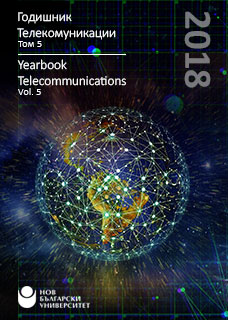Параметри за оценка на онлайн обучителни платформи
Assessement parameters for online training platforms
Author(s): Polina MihovaSubject(s): Social Sciences, Education, Communication studies, Theory of Communication, Higher Education
Published by: Нов български университет
Keywords: Online training; Training platforms; Open source system; Evaluation parameters
Summary/Abstract: The commitment and the immediate access to the web from every location and the competences of the education and development seekers ensure that, if desired and needed, knowledge absorption could be realized with a totally reduced time in the lecture hall. A number of studies have been studying the behavior of students and trainees, with aggregated results showing that 94% of the surveyed students use the Internet for training, 82% are online at home, and 77% use at least a social networking site.The aim of the paper is to study and analyze the 8 most popular and most widely used online distance learning platforms. The research methods include literature and web analytics, synthesizing and refining the motives for the platforms selection, and a summary of the obtained results. The platforms are analyzed with more than 35 specific parameters.The results of the survey show that by using the rich choice of technological models, the combination of different platforms with a variety of functional capabilities, new perspectives are created for the binomial couple learner - trainer from different profiles but with increased responsibilities and requirements in terms of technological competencies of the trainer.Conclusion: Technological provision and innovative methods lead to increased responsibility and create new challenges for both the trainer and trainees. The trainer becomes responsible for all the technical elements of design, course building and conduct, as well as the synchronization of the technical elements of the design and the average available technologies of the learners as the basis of the training is computer-mediated communication through the use of innovative chat boards, chatrooms , virtual class articles, video conferencing, and more functionalities.
Journal: Годишник Телекомуникации
- Issue Year: 2018
- Issue No: 5
- Page Range: 109-117
- Page Count: 9
- Language: Bulgarian

